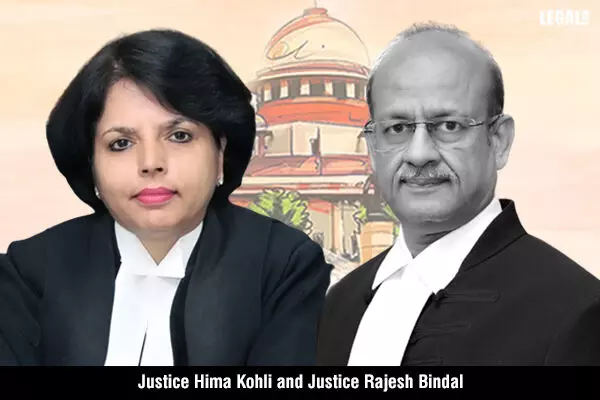- Home
- News
- Articles+
- Aerospace
- Artificial Intelligence
- Agriculture
- Alternate Dispute Resolution
- Arbitration & Mediation
- Banking and Finance
- Bankruptcy
- Book Review
- Bribery & Corruption
- Commercial Litigation
- Competition Law
- Conference Reports
- Consumer Products
- Contract
- Corporate Governance
- Corporate Law
- Covid-19
- Cryptocurrency
- Cybersecurity
- Data Protection
- Defence
- Digital Economy
- E-commerce
- Employment Law
- Energy and Natural Resources
- Entertainment and Sports Law
- Environmental Law
- Environmental, Social, and Governance
- Foreign Direct Investment
- Food and Beverage
- Gaming
- Health Care
- IBC Diaries
- In Focus
- Inclusion & Diversity
- Insurance Law
- Intellectual Property
- International Law
- IP & Tech Era
- Know the Law
- Labour Laws
- Law & Policy and Regulation
- Litigation
- Litigation Funding
- Manufacturing
- Mergers & Acquisitions
- NFTs
- Privacy
- Private Equity
- Project Finance
- Real Estate
- Risk and Compliance
- Student Corner
- Take On Board
- Tax
- Technology Media and Telecom
- Tributes
- Viewpoint
- Zoom In
- Law Firms
- In-House
- Rankings
- E-Magazine
- Legal Era TV
- Events
- Middle East
- Africa
- News
- Articles
- Aerospace
- Artificial Intelligence
- Agriculture
- Alternate Dispute Resolution
- Arbitration & Mediation
- Banking and Finance
- Bankruptcy
- Book Review
- Bribery & Corruption
- Commercial Litigation
- Competition Law
- Conference Reports
- Consumer Products
- Contract
- Corporate Governance
- Corporate Law
- Covid-19
- Cryptocurrency
- Cybersecurity
- Data Protection
- Defence
- Digital Economy
- E-commerce
- Employment Law
- Energy and Natural Resources
- Entertainment and Sports Law
- Environmental Law
- Environmental, Social, and Governance
- Foreign Direct Investment
- Food and Beverage
- Gaming
- Health Care
- IBC Diaries
- In Focus
- Inclusion & Diversity
- Insurance Law
- Intellectual Property
- International Law
- IP & Tech Era
- Know the Law
- Labour Laws
- Law & Policy and Regulation
- Litigation
- Litigation Funding
- Manufacturing
- Mergers & Acquisitions
- NFTs
- Privacy
- Private Equity
- Project Finance
- Real Estate
- Risk and Compliance
- Student Corner
- Take On Board
- Tax
- Technology Media and Telecom
- Tributes
- Viewpoint
- Zoom In
- Law Firms
- In-House
- Rankings
- E-Magazine
- Legal Era TV
- Events
- Middle East
- Africa
Under ESI Act, Electronics Shop Providing Repairing and Servicing of Electrical Equipments Defined as ‘Factory’: Supreme Court

Under ESI Act, Electronics Shop Providing Repairing and Servicing of Electrical Equipments Defined as ‘Factory’: Supreme Court
The bench was hearing an appeal against the judgment of the Karnataka High Court
The Supreme Court has ruled that a shop selling electronic goods and repairs/services can be said to be engaged in a ‘manufacturing process’ using ‘power’ as defined under the Employees State Insurance (ESI) Act, 1948, and the Factories Act, 1948.
The bench comprising Justice Hima Kohli and Justice Rajesh Bindal was hearing an appeal against the judgment of the Karnataka High Court, which confirmed that the ESI Act would be applicable to the firm.
The Top Court stated that the firm's utilization of electrical energy for repairing electrical goods would make it fall within the definition of ‘power’ used in the ‘manufacturing process’ under both the ESI Act and the Factories Act.
The Judges noted that Section 2(14A) of the ESI Act mentioned the term ‘manufacturing process’ and relied on its definition under Section 2(k) of the Factories Act. The word ‘manufacturing process’ also included ‘repairing’ any product.
The bench observed “The appellant firm is in the business of selling electrical goods in a shop. The premises are used not only for selling goods but also to service electrical goods. Therefore, it falls under the definition of a ‘factory’ and is using a ‘manufacturing process’ as contemplated under both the statutes.”
The appellant had contended that it was not manufacturing goods with the aid of ‘power’ as defined under the ESI Act. The Court referred to the term ‘power’ under Section 2(15)(C) of the ESI Act, defined under Section 2(g) of the Factories Act.
Justice Kohli and Justice Bindal noted that ‘power meant where any electric energy was transmitted.’ Therefore, when electric energy was used for the repair of goods, it meant using ‘power.’
Thus, the bench dismissed the appeal and confirmed the findings of the high Court that the appellant firm was covered under the ESI Act.



